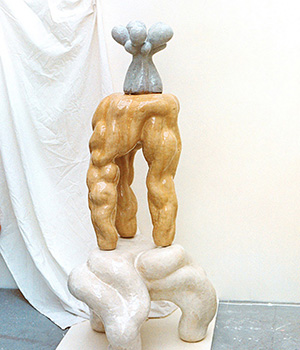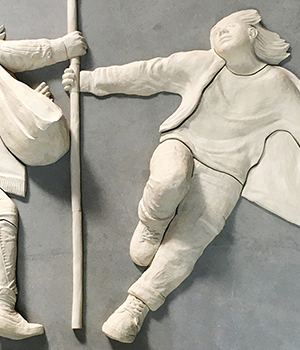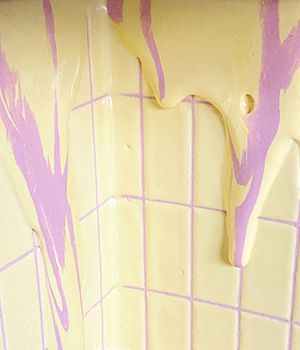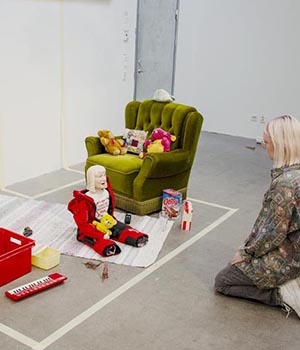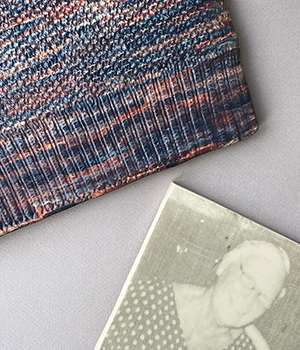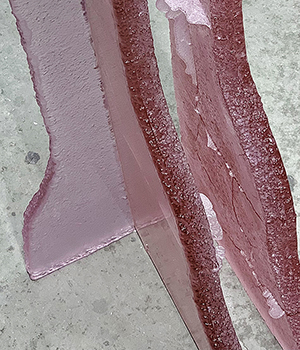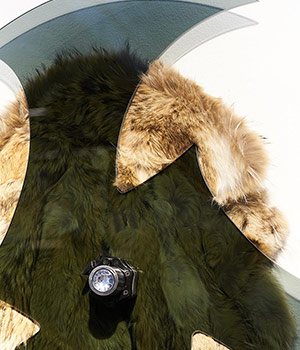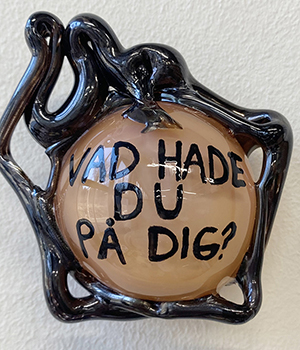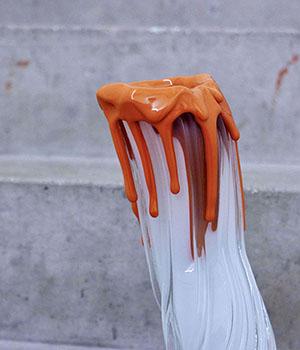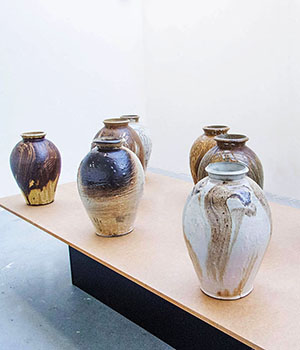The journey of this year’s graduating students through the programme has been difficult and fraught with challenges. They have lived through a pandemic, with isolation and restrictions through the greater part of their studies. This winter, we’ve also all been shocked over war breaking out in Europe once again.
The poet Athena Farrokhzad asked a question in her 2014 national radio summer programme: Is it possible in these dark times to write about the beauty of a tree? It was the same question Bertolt Brecht asked over 80 years ago in 1930s Germany. This spring of 2022, we have reason to ask ourselves this question again. Is it possible?
The Syrian poet and writer Faraj Bayrakdar, who is living in exile in Sweden, and was previously imprisoned for many years under the Assad regime in Syria, was asked the same question during the Syrian war. His answer was surprising. He said that it was this very poetry about the trees and the beautiful, preserved in his memory, allowing him to endure his years in prison. Without his poetry, he would have perished.
I think that many of us who devote ourselves to artistic creation in these times contemplate and question the validity of art and craft. This is why it is important to remind ourselves that art creates meaning and that it does so in many and unfathomable ways. It must be allowed to continue to do so, and for this to happen, it must be given the greatest possible freedom.
It is precisely this freedom that is reflected in the degree projects presented by this year’s Ceramics and Glass students. In these projects, you will find the gravity and the deep existential questions juxtaposed with light, hope and humour. That which evades us in verbal language is captured here, and yet topical and relevant societal issues are also spoken about clearly and explicitly. Tradition coexists with the transboundary. This year’s students move freely and unencumbered in the expanded field opened by contemporary crafts.
Mårten Medbo, Senior Lecturer in Ceramics
The journey of this year’s graduating students through the programme has been difficult and fraught with challenges. They have lived through a pandemic, with isolation and restrictions through the greater part of their studies. This winter, we’ve also all been shocked over war breaking out in Europe once again.
The poet Athena Farrokhzad asked a question in her 2014 national radio summer programme: Is it possible in these dark times to write about the beauty of a tree? It was the same question Bertolt Brecht asked over 80 years ago in 1930s Germany. This spring of 2022, we have reason to ask ourselves this question again. Is it possible?
The Syrian poet and writer Faraj Bayrakdar, who is living in exile in Sweden, and was previously imprisoned for many years under the Assad regime in Syria, was asked the same question during the Syrian war. His answer was surprising. He said that it was this very poetry about the trees and the beautiful, preserved in his memory, allowing him to endure his years in prison. Without his poetry, he would have perished.
I think that many of us who devote ourselves to artistic creation in these times contemplate and question the validity of art and craft. This is why it is important to remind ourselves that art creates meaning and that it does so in many and unfathomable ways. It must be allowed to continue to do so, and for this to happen, it must be given the greatest possible freedom.
It is precisely this freedom that is reflected in the degree projects presented by this year’s Ceramics and Glass students. In these projects, you will find the gravity and the deep existential questions juxtaposed with light, hope and humour. That which evades us in verbal language is captured here, and yet topical and relevant societal issues are also spoken about clearly and explicitly. Tradition coexists with the transboundary. This year’s students move freely and unencumbered in the expanded field opened by contemporary crafts.
Mårten Medbo, Senior Lecturer in Ceramics

